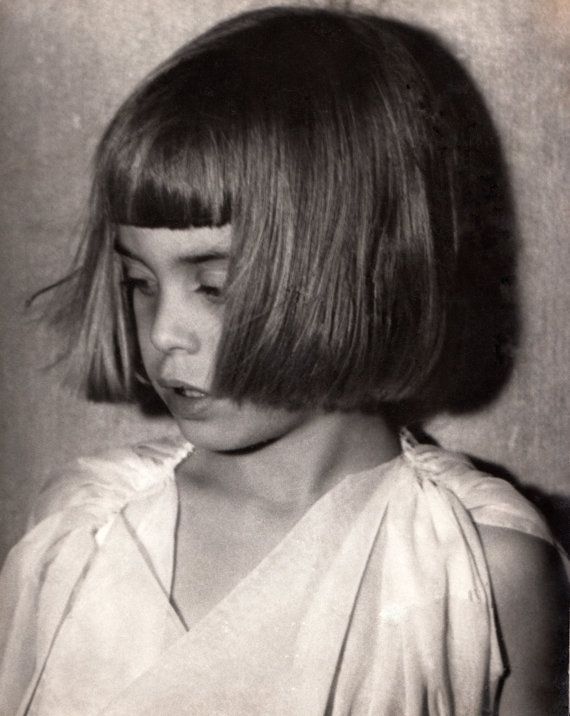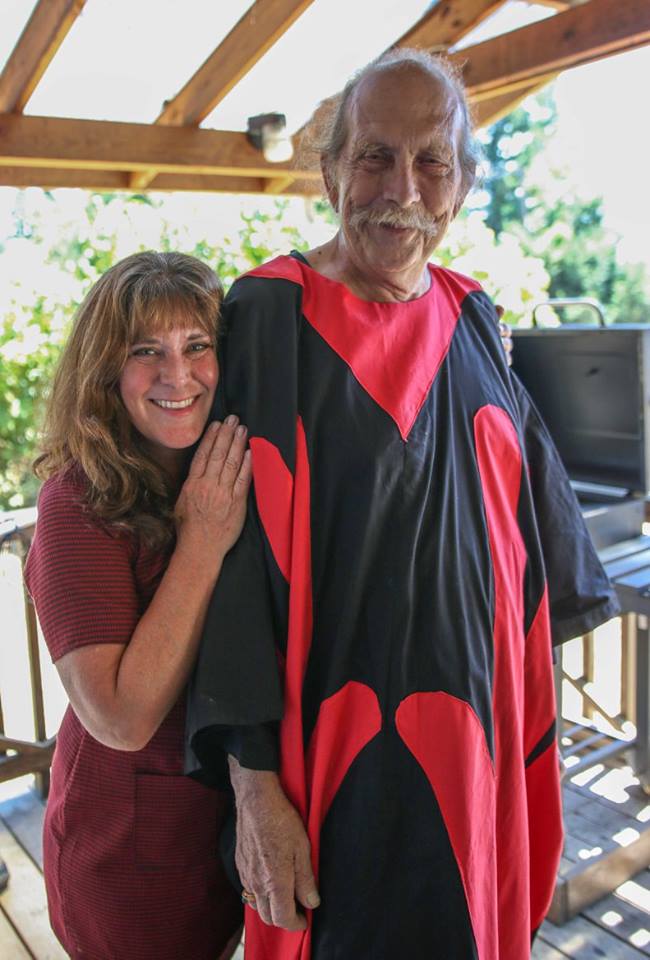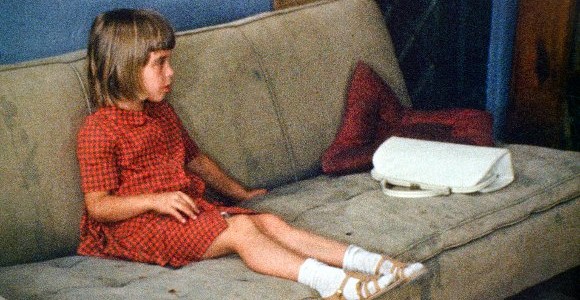Let’s get this out of the way – MANOS: THE HANDS OF FATE isn’t a bad movie. Nor is it the worst movie I’ve ever seen, and I’d hedge my best that you’d agree. Going further, I would posit some people have seen way worse movies than this particular film, movies with way bigger budgets and even bigger stars, and those films don’t have the resurgent legacy of a dirt-cheap horror picture shot in El Paso, Texas in 1966.
I’ll start with the positives first, and we can circle back around to what doesn’t work. This isn’t a pile-on, but merely an appreciation of a film that’s gotten appreciation in the wrong way, and only celebrated by one daring cable show in all the right ways. MANOS is a genuinely spooky film, with poorly shot scenes of a dark desert where you seemingly can’t see any further than your nose. It’s a little ominous that you can’t see beyond the darkness. I realize that this is only a budgetary reason, but for the film, it kind of works. The story might be the element that works best, and if it had a better writer, it could work gangbusters in a remake. The idea of a religious cult somewhere in the back roads of Texas? It could be some torture film from the mid-to late 2000s. With religious cults popping up everywhere and anywhere, the idea is ripe for retelling. If perhaps the actors may have been able to use their voices, rather than the dubbing that occurred post-production, we could celebrate them for more than being physically able to perform their roles. No one is bad in the film, per se, because a lot of it is the dubbing and script and even the direction they were most likely given. But they worked damn hard, I’m sure, and they deserve to be lauded for that.
Is MANOS: THE HANDS OF FATE a well-made movie? I’d have to say ‘no’ to that question. Even on a fundamentally basic filmmaking level, Warren isn’t up to the task. I know he wasn’t a professional filmmaker, sure, but the film is framed bizarrely at many, many times. See, for instance, the teens making out in the car. Its off-kilter and out of this world. Perhaps if more thought was put into the technical (and the script) side of things, Manos would be a much better film than it’s known for, but you couldn’t expect much out of a film that was literally the result of a bet.
What’s truly inspiring about this film is its longevity. Brought to most of the world’s attention via the beloved Mystery Science Theatre 3000 on January 30th, 1993, the film found itself a new lease on life. The episode is hilarious from top to bottom as the riffers have gentle fun with the film, and create gold from the wet hay that is the original film. Though they are harsh at times on the film’s pace and pretty much everything else, there’s a sense of appreciation from Joel and the Bots as they take MANOS and turn it into something beautiful. It’s no wonder it’s my favorite Joel episode, and perhaps my favorite episode ever of the show.
Kids, I’ll say that I get chills when I hear The Master give his speeches about MANOS. That’s no lie.
Daily Grindhouse took some time out to speak with Jackey Neyman Jones (who played Debbie), star of MANOS: THE HANDS OF FATE, to discuss the film in some detail:

Daily Grindhouse:Tell me your recollections of shooting MANOS: THE HANDS OF FATE.
Jackey Neyman Jones: That is a huge question, and one that I answer pretty well in my book “Growing Up With MANOS: THE HANDS OF FATE,” and in my blog.
I am an artist, and have always had an inquisitive and observant mind. That, coupled with my adoration of my dad as a young gir,l helped me to cement many details of the making and filming of MANOS in my mind. I describe my memories as how one would hold onto a once-in-a-lifetime experience. For a child, it might be a great birthday party or family vacation. For me, it was MANOS. After filming, everyone scattered, and never talked about it once they realized how bad the film was, and that it would never go anywhere. Some of those folks we never saw again after the premiere. I nurtured my memories and kept them alive through stories to friends about the movie I was in with my dad. We could not have imagined it would rise again, twenty-seven years later.
DG: How was Harold P. Warren as a director?
JNJ: He was a stressed-out man whenever I saw him on set. The whole thing was filmed in about eight days’ worth of nights and weekends, so there was no time or money to spare. He paced and smoked and barked out orders, to the point the crew began mocking him both in front of and behind his back. It was their way of finding relief. To me, he was distant, and I felt like a prop to be placed. He didn’t bother me though. I was content to be there and just did what I was asked.
DG: What were your initial thoughts on the film when you saw it?
JNJ: I was excited at all the build-up to the event, but confused by certain things, like us waiting in the alleyway behind the theater to be picked up by the one limo and dropped off on the red carpet. The theater was buzzing and full. Anticipation, until the film started and it quickly became apparent that it wouldn’t be a good film. I was unaware of most of that until my mouth opened on screen, and a horrid alien voice came out. My face got hot and red, and I burst into tears. We were trapped in our seats, and just waited it out till we could escape. No after-party for my family.
DG: Could you tell me when you became aware of its resurgence on Mystery Science Theatre 3000?
JNJ: My dad, an MST fan, was watching one Saturday afternoon in January 1993 while dozing off, and he awoke to hear a familiar tune from long ago. He opened his eyes and there he was. He called me, so I called the 800 number on the Comedy Central screen, and got a guy on the phone at the HBO offices in Manhattan. I told him they just showed a film I had been trying to find for year,s and that my entire family had been part of. Was there any way I could get a copy? He asked the name, and when I told him, the line went silent. I thought we were disconnected until he blurted out: “Oh my God! Are you Debbie?“ I was shocked, and he sent me a bootleg copy. The rest is history.
DG: Are you surprised at the longevity the film has attained? It even received a pristine Blu-Ray release a while back.
JNJ: Of course. I have enjoyed connecting with fans since MST first aired it and the internet was born. I always felt it would have its time and disappear, but it just keeps growing. My dad and I had the opportunity to do some commentary on the Blu-Ray extras. We had a blast, and we’ve really enjoyed connecting with fans over the years. My dad wasn’t online, and he enjoyed his privacy, but he really loved that I shared all the activity with him. He enjoyed hearing from the fans and I loved letting them know The Master Approved!
DG: What can you tell us about the sequel?
JNJ: MANOS RETURNS had a successful Kickstarter in winter 2016, and it filmed last summer in Oregon. We are currently in post-production, and we accomplished quite a feat with the limited budget, time, logistics, amazing talent and resources that came our way. MANOS RETURNS is written by Rachel Jackson, Tonjia Atomic and I. Produced by us. along with Joe Sherlock. who is also our Director of Photography. My dad. Tom Neyman. reprises his role as The Master, Diane Mahree is back as my mother Margaret, and I play Debbie. This time I’m in charge of the place. The Sheriff is played by original MANOS Sheriff William Bryan Jennings’ son, Bryan Jennings. The vocalist from the original soundtrack, Nicki Mathis has recreated two songs from the film, “Forgetting You” and “Love Inside This Magic Circle.”
DG: Can you tell me a bit about how your father relished his immortal role as “The Master?”
JNJ: My dad was a rock star of community theater in El Paso in the mid 1960s and had done a number of lead roles in an active vibrant artistic community. He was an accomplished artist with several solo exhibits under his belt. Hal Warren’s offer to be in a film was, he had hoped, another step forward. It was an embarrassment that he and everyone else who was roped in tried to forget. He had a great attitude about the MANOS resurgence and took it for what it was. He was as surprised as anyone to know this is what he would be ultimately remembered for.
Thanks to Jackey for taking the time out to speak with us.

Tags: Interviews, Jackey Neyman Jones


No Comments